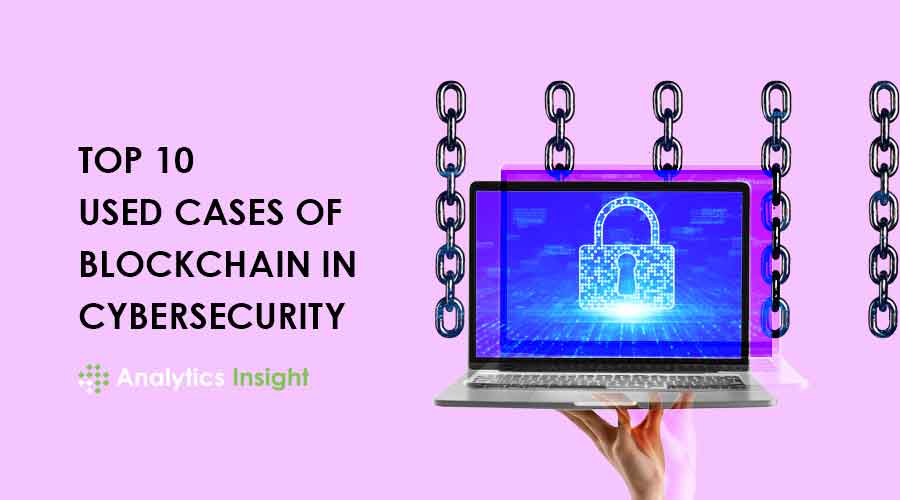In the dynamic landscape of cybersecurity, where threats evolve as rapidly as defenses, blockchain emerges as a stalwart guardian, revolutionizing the paradigms of digital security. Beyond its cryptocurrency origins, blockchain technology is increasingly recognized for its transformative impact on fortifying cyber defenses.
This comprehensive exploration delves into the multifaceted ways blockchain reshapes the cybersecurity terrain. From decentralized identity management to immutable audit trails, secure supply chain mechanisms, and resilient DDoS protection, blockchain is not merely a buzzword but a fundamental force fostering transparency, accountability, and innovation.
Join us on a journey through the top 10 use cases of blockchain in cybersecurity, unraveling the revolutionary potential that this decentralized technology brings to the forefront of our digital defenses.
1. Decentralized Identity Management: Reinventing Security Foundations
Blockchain’s decentralization prowess takes center stage in the realm of identity management. The traditional model of centralized identity systems poses significant risks, with a single breach potentially compromising the data of millions. Blockchain introduces decentralized identity solutions, allowing individuals to maintain control over their personal information. Self-sovereign identities empower users to authenticate credentials without relying on a central authority, mitigating the risks associated with identity theft and unauthorized access.
2. Immutable Audit Trails: Fortifying Transparency and Accountability
The immutability of blockchain ledgers introduces a paradigm shift in creating audit trails. These tamper-resistant trails become invaluable in cybersecurity, offering transparency and accountability. Once data is recorded on the blockchain, its immutability ensures that it cannot be altered or deleted. This feature becomes a powerful tool for tracking and investigating security incidents, creating a robust defense against malicious activities.
3. Secure Supply Chain Management: Blockchain’s Shield Against Fraud
Securing the global supply chain is a critical cybersecurity challenge. Blockchain injects transparency and traceability into supply chain networks. Through smart contracts, stakeholders can automate and secure transactions, significantly reducing the risk of counterfeit products, fraud, and unauthorized access to sensitive information within the supply chain.
4. Tokenization of Assets: Elevating Data Security to New Heights
Blockchain’s ability to tokenize assets is a game-changer in data security. Sensitive information can be represented as tokens on the blockchain, adding a layer of protection. Access to these tokens can be meticulously controlled through smart contracts, providing a robust defense against data breaches and unauthorized access.
5. Decentralized Threat Intelligence: Collaborative Defense Mechanisms
Collaborative threat intelligence platforms built on blockchain foster the secure sharing of real-time threat data among diverse entities. This decentralized approach ensures the secure sharing of threat information, enabling quicker responses to emerging cyber threats without compromising the confidentiality of sensitive data.
6. Distributed Denial of Service (DDoS) Protection:
Blockchain’s decentralized nature creates resilient networks less susceptible to DDoS attacks. By distributing network resources across a blockchain, it becomes significantly more challenging for malicious actors to overwhelm a centralized point, enhancing the overall security and availability of online services.
7. Zero Trust Security Models: Reinventing Security Philosophies
Zero trust security, with its core tenet of “never trust, always verify,” aligns seamlessly with blockchain’s decentralized principles. Utilizing blockchain for identity verification and access control allows organizations to implement a more robust zero-trust security model, minimizing the risk of unauthorized access and insider threats.
8. Smart Contract Security Audits: Ensuring Code Integrity
Smart contracts, fundamental to many blockchain applications, require rigorous security assessments. Blockchain facilitates transparent and automated intelligent contract audits, ensuring these contracts are secure and vulnerabilities-free before deployment. This proactive approach safeguards against potential exploits and openness in the code.
9. Decentralized File Storage: Guarding Against Centralized Vulnerabilities
Traditional centralized file storage systems are vulnerable to data breaches. Blockchain-based decentralized file storage systems distribute data across a network, reducing the risk of a single point of failure. This enhances the security of sensitive files and ensures privacy by minimizing data exposure to potential breaches.
10. Immutable Threat Intelligence Feeds: Building Trust in Cybersecurity Data
Storing threat intelligence feeds on a blockchain guarantees its immutability and transparency. This ensures that the information received from various sources remains unchanged and authentic. Security analysts can rely on this unaltered data for robust threat analysis and response, establishing a foundation of trust in cybersecurity data.

